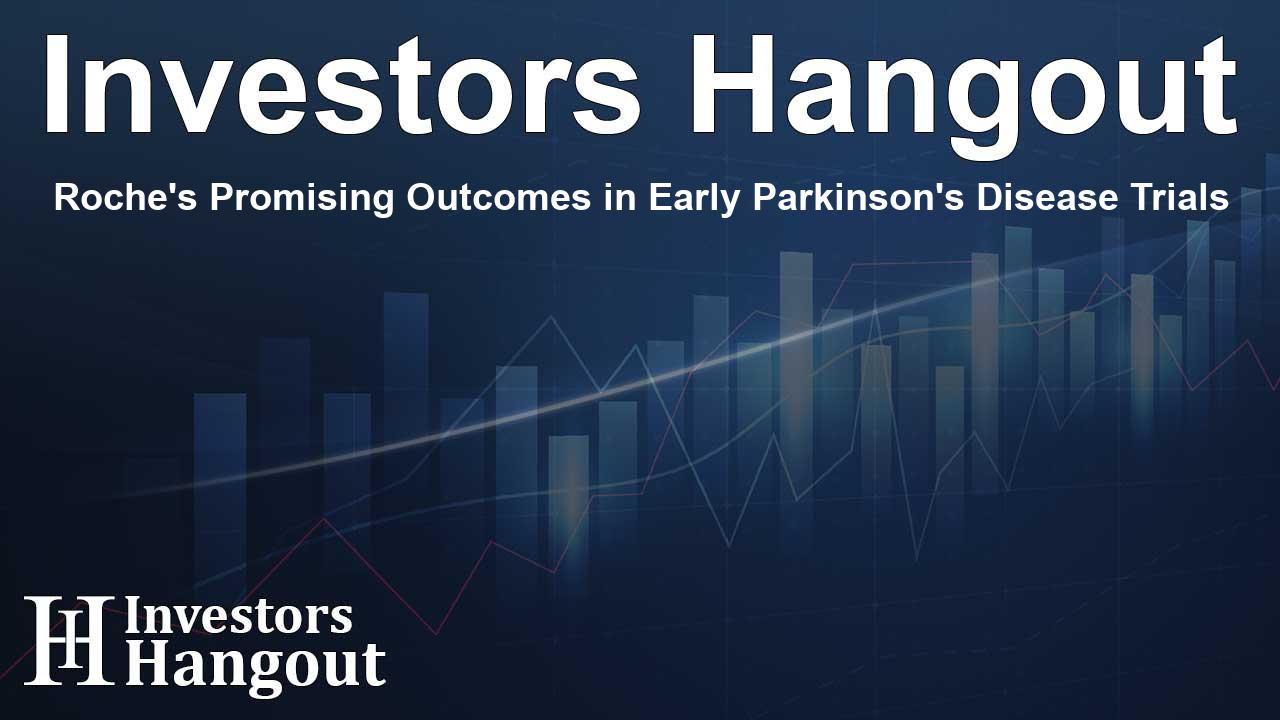Roche's Promising Outcomes in Early Parkinson's Disease Trials

Roche's New Clinical Findings in Parkinson's Disease Treatment
Roche has made significant strides in combating Parkinson's disease through its recent Phase IIb study of prasinezumab. The research points toward a potential delay in motor progression for participants in the PADOVA study, indicating that this investigational medication may offer hope for those in early stages of the disease.
Overview of the PADOVA Study Results
The PADOVA trial involved 586 individuals diagnosed with early-stage Parkinson's disease, all receiving prasinezumab over an extended period while maintaining their ongoing symptomatic treatments. Although the primary endpoint assessing the time to confirmed motor progression did not meet statistical significance, displaying a hazard ratio of HR=0.84, the findings were nonetheless promising with trends showing a potential beneficial effect, particularly among the 75% of patients treated with levodopa.
Secondary Endpoints and Safety Profile
Encouragingly, positive trends were observed across several secondary and exploratory endpoints. Patients reported no new safety concerns throughout the study, with no additional safety signals arising since treatment began. Such outcomes underscore the medication's favorable tolerance and safety profile.
Next Steps and Future Collaborations
Roche is dedicated to analyzing these findings in greater depth, aiming to address the gaps identified in the primary endpoint. The collaboration with health authorities and the Parkinson’s community remains essential as Roche intends to explore the results thoroughly to inform future directions. Dr. Levi Garraway, Roche's Chief Medical Officer, emphasized the necessity of collaboration in understanding the complexities surrounding Parkinson's disease.
Extensive Research into Disease Mechanisms
Prasinezumab functions by targeting aggregated ?-synuclein, a protein associated with neuron toxicity in Parkinson's disease. This investigational monoclonal antibody could potentially slow the disease's progression by preventing the buildup of this protein in the brain. The pharmacological approach leverages a vast body of scientific evidence indicating that ?-syn aggregates play a critical role in the advancement of the disease.
Insights from PASADENA Study
Building on the momentum from the PADOVA trial, the ongoing PASADENA study is also critical. Preliminary findings suggest that patients in both the delayed-start and early-start treatment groups exhibited a slower decline in motor function. This aligns with the overarching goal of finding effective treatments that not only alleviate symptoms but could also modify disease progression.
Commitment to Innovative Neuroscience Research
Roche’s research program extends beyond just one investigational drug; the company is actively developing over a dozen potential solutions for neurological disorders. This commitment to neuroscience aims to address various conditions, including Alzheimer’s and Huntington’s disease, showcasing Roche’s ambition to solve some of the daunting challenges faced in the field.
Strengthening Partnerships for Better Outcomes
Roche's long-standing partnerships, such as the agreement with Prothena for developing monoclonal antibodies for Parkinson's disease treatment, highlight the collaborative spirit essential to medical advancement. By pooling expertise and resources, Roche is better equipped to tackle these complex diseases.
The Growing Need for Effective Parkinson's Treatments
Parkinson's disease remains a pressing global health issue, affecting millions and continuing to rise in prevalence. As current therapies primarily focus on symptom management, there is an urgent need for solutions that can halt or significantly slow disease progression. Roche’s determination to address this need through innovative research is vital not just for current patients but for future generations.
Conclusions on Roche's Impact
In summary, Roche’s efforts in the PADOVA study and broader neuroscience initiatives illustrate its commitment to improving lives afflicted by neurodegenerative diseases. The emerging data related to prasinezumab brings a renewed perspective on the potential to alter the course of early-stage Parkinson's disease. Future developments and collaborations will be instrumental in achieving breakthroughs in treatment options available for patients.
Frequently Asked Questions
What is prasinezumab?
Prasinezumab is an investigational monoclonal antibody aimed at targeting aggregated ?-synuclein to reduce neuron toxicity in Parkinson's disease.
How many participants were in the PADOVA study?
There were 586 participants in the PADOVA study, all diagnosed with early-stage Parkinson's disease.
What was the primary endpoint of the PADOVA study?
The primary endpoint assessed was the time to confirmed motor progression of Parkinson's disease, indicating a clinically meaningful motor event.
Did the study report any new safety signals?
No new safety signals were reported, indicating that prasinezumab was well tolerated among study participants.
What next steps is Roche considering for prasinezumab?
Roche plans to further analyze the PADOVA study results and collaborate with health authorities to determine future research directions and steps involving prasinezumab.
About Investors Hangout
Investors Hangout is a leading online stock forum for financial discussion and learning, offering a wide range of free tools and resources. It draws in traders of all levels, who exchange market knowledge, investigate trading tactics, and keep an eye on industry developments in real time. Featuring financial articles, stock message boards, quotes, charts, company profiles, and live news updates. Through cooperative learning and a wealth of informational resources, it helps users from novices creating their first portfolios to experts honing their techniques. Join Investors Hangout today: https://investorshangout.com/
Disclaimer: The content of this article is solely for general informational purposes only; it does not represent legal, financial, or investment advice. Investors Hangout does not offer financial advice; the author is not a licensed financial advisor. Consult a qualified advisor before making any financial or investment decisions based on this article. The author's interpretation of publicly available data shapes the opinions presented here; as a result, they should not be taken as advice to purchase, sell, or hold any securities mentioned or any other investments. The author does not guarantee the accuracy, completeness, or timeliness of any material, providing it "as is." Information and market conditions may change; past performance is not indicative of future outcomes. If any of the material offered here is inaccurate, please contact us for corrections.